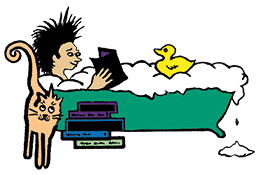Understanding and Treating Chronic Shame: A Relational/Neurobiological Approach
Author(s): Patricia A. DeYoung
Chronic shame is painful, corrosive, and elusive. It resists self-help and undermines even intensive psychoanalysis. Patricia A. DeYoung's cutting-edge book gives chronic shame the serious attention it deserves, integrating new brain science with an inclusive tradition of relational psychotherapy. She looks behind the myriad symptoms of shame to its relational essence. As DeYoung describes how chronic shame is wired into the brain and developed in personality, she clarifies complex concepts and makes them available for everyday therapy practice.
Grounded in clinical experience and alive with case examples, Understanding and Treating Chronic Shameis highly readable and immediately helpful. Patricia A. DeYoung's clear, engaging writing helps readers recognize the presence of shame in the therapy room, think through its origins and effects in their clients' lives, and decide how best to work with those clients. Therapists will find that Understanding and Treating Chronic Shameenhances the scope of their practice and efficacy with this client group, which comprises a large part of most therapy practices. Challenging, enlightening, and nourishing, this book belongs in the library of every shame-aware therapist.
Product Information
"Shame is indeed a phenomenon that is both in the brain, the mind, and in the space between us. Dr. DeYoung does a solid job in addressing the challenges of living with and treating chronic shame using a thoughtful, humane, and scientific approach." Louis Cozolino, PhD, professor of psychology at Pepperdine University's Graduate School of Education and Psychology "Beginning with diverse clinical vignettes with very dissimilar diagnoses, Patricia DeYoung tackles the unvoiced but powerful presence of shame that so often lies at the unspoken core of what troubles our clients. She beautifully and evocatively gives voice and shape to the annihilating impact of lack of attunement. DeYoung also makes the point that because shame takes root in relationship, we must heal it relationally. Equally important, she reminds us that, to be effective in this work, therapists must engage in their own ongoing internal work. This special book needs to be read by all of us." Patricia L. Papernow, EdD, instructor in psychology at Harvard Medical School and author of Surviving and Thriving in Stepfamily Relationships "Defining shame as first and foremost a relational experience, Patricia DeYoung unpacks the extensive, damaging consequences of feeling chronically shamed while illustrating effective treatment in clear, accessible language. For clinicians who wish to understand and treat shame from the psychodynamic perspective, this book is a vital resource." Martha Sweezy, PhD, associate director and director of training for the dialectical behavioral therapy program at Harvard Medical School's Cambridge Health Alliance
Patricia A. DeYoung, MSW, PhD, is a relational psychotherapist, clinical supervisor, and a founding faculty member of the Toronto Institute for Relational Psychotherapy.
Introduction I. Understanding Chronic Shame 1. Chronic Shame: An Unspoken Problem 2. Shame is Relational 3. Shame and the Relational Brain 4. Relational/Neurobiological Narratives of Shame 5: Assessing for Shame II. Treating Chronic Shame 6. Prerequisites for Working with Shame 7. Fostering Right Brain Connection 8. Narrative as Right Brain Integration 9. Giving Shame Light and Air 10. The Challenge of Dissociated Shame 11. Lifetime Shame Reduction References
General Fields
- :
- : Taylor & Francis Ltd
- : Routledge
- : 01 January 2015
- : United Kingdom
- : books
Special Fields
- : Patricia A. DeYoung
- : Paperback
- : 1502
- : en
- : 616.8917
- : 190
- : black & white illustrations


